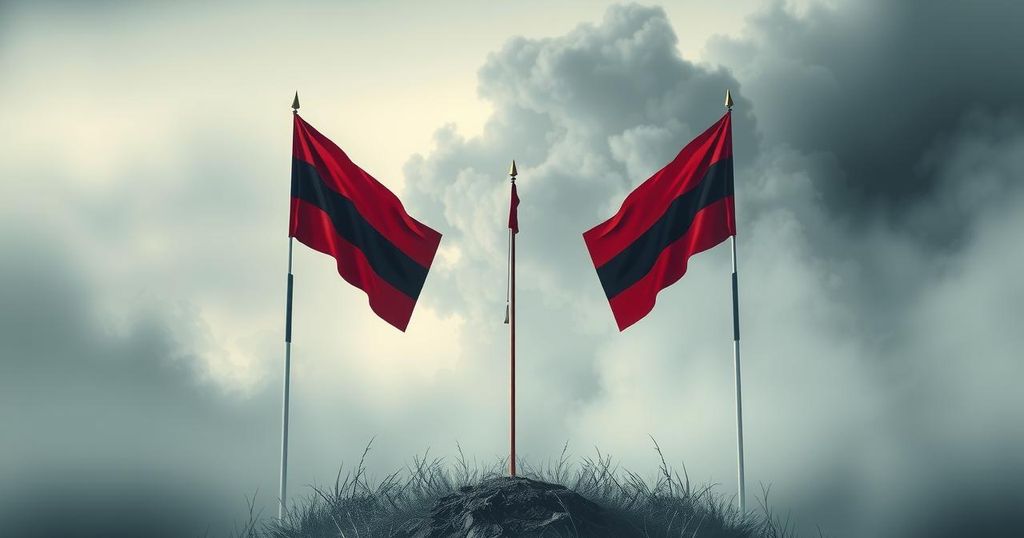World news
ASIA, CRIMEA, DMITRY UTKIN, DONETSK, EUROPE, EUROPE/ASIA, GEOPOLITICS, HOMS, INTERNATIONAL RELATIONS, ISIL, KHARKIV, KYIV, LU, LUHANSK, MILITARY, NORTH AMERICA, PMC WAGNER, PMC WAGNER RELATED PEOPLE : YEVGENY PRIGOZHIN NEWS, REPUBLIC, RUSSIA, RUSSIA-UKRAINE WAR, RUSSIAN FEDERATION, SPETSNAZ, SYRIA, UKRAINE, UNITED STATES, VIKTOR YANUKOVYCH, VLADIMIR PUTIN, WAGNER, WAR, YEV
David O'Sullivan
0 Comments
An Overview of the Wagner Group: Operations, Leadership, and Controversies
The Wagner Group is a Russian private military company involved in global military operations for the Russian state. Its connections to the government were confirmed by President Putin in 2023. Founded under the leadership of Yevgeny Prigozhin, Wagner gained notoriety for its involvement in conflicts in Ukraine, Syria, and Africa. The group’s activities have raised serious human rights concerns and sparked a mutiny led by Prigozhin against Russian military officials.
The Wagner Group, officially known as PMC Wagner, is a Russian mercenary organization involved in military operations globally, often acting on behalf of the Russian state. Despite the illegality of private military companies (PMCs) in Russia, strong ties between Wagner and Russian military structures have been long recognized by experts. In June 2023, President Vladimir Putin confirmed this when he stated that “maintenance of the entire Wagner Group was fully provided for by the state.”
Yevgeny Prigozhin, a notable figure connected to Wagner, took a central role in its establishment, although its activities began nearly a decade earlier. The group emerged from previous mercenary efforts, including the Slavonic Corps created in 2013 to aid Bashar al-Assad’s Syrian regime during the civil war. Dmitry Utkin, a former GRU officer and associated with the Slavonic Corps, was established as the group’s commander in 2014, while Prigozhin acted as its director, securing weapons and funding.
Following the 2014 Russian annexation of Crimea, Wagner’s significance increased as it was employed to back pro-Russian separatists in Eastern Ukraine, allowing Russia to deny direct involvement. The group gained notoriety for its operations within Ukraine, where many of its mercenaries engaged in violent confrontations, deliberately preserving a façade of plausible deniability for the Kremlin.
Wagner subsequently expanded its reach to Syria and various African nations, conducting operations that often resulted in human rights violations, including mass killings and war crimes. In particular, Wagner’s role in conflicts across Mali and the Central African Republic drew international scrutiny due to alleged abuses committed by its mercenaries.
During the Russian civil war in Syria, Wagner played a critical role in supporting the Assad regime, notably engaging American and Kurdish forces in a violent encounter in 2018 at the Conoco gas plant. This confrontation highlighted Wagner’s effectiveness as a Russian proxy force while revealing the complexities of U.S.-Russian foreign military engagements.
In February 2022, Wagner was significantly involved in the full-scale invasion of Ukraine, recruiting tens of thousands, primarily from prisons, to bolster Russian combat forces. Following prolonged battles, including the fierce confrontation in Bakhmut, intra-group conflicts emerged, culminating in a mutiny led by Prigozhin against the Russian military leadership.
Prigozhin’s rebellion led to a brief takeover of military installations before an agreement brokered by Belarusian President Alexander Lukashenko compelled him to cease hostilities and relocate to Belarus. The future of Wagner and its leadership became uncertain, and following Prigozhin’s mysterious death in a plane crash in August 2023, the group’s fate remains in the balance.
The Wagner Group is a private military company whose operations and connections with the Russian state have been the subject of extensive scrutiny. Officially recognized in December 2022, the group’s activities, however, date back to at least 2014 amid the Ukraine crisis. The intersection of Russian foreign policy and mercenary operations exemplified by Wagner raises questions about the legality and ethics surrounding private military engagement in conflicts worldwide. Constantly shrouded in ambiguity, the organization has engaged in numerous military operations across various nations, bolstered by substantial state support despite Russia’s prohibition on PMCs. President Putin’s backing chronicled the group’s shifting dynamics within the Russian military framework and its strategic utility in foreign engagements. The Wagner Group’s trajectory has also involved controversies related to human rights violations, particularly in regions where it operated, further complicating international perceptions of Russia’s foreign interventions. The group’s operational strategies and political affiliations play a critical role in understanding the surface and underlying motives driving Russia’s military approaches in regions of geopolitical interest.
In conclusion, the Wagner Group exemplifies the complexities surrounding private military enterprises and their entanglement with state policies. Initially emerging to support Russian interests abroad, it has expanded operations, often with grave humanitarian consequences. The infighting among its leadership marks significant rifts within Russian military strategy, contributing to the intriguing dynamics of Russian political and military landscapes. Following key events, including the brief mutiny of Prigozhin, the future of Wagner remains uncertain amid evolving geopolitical tensions.
Original Source: www.britannica.com




Post Comment